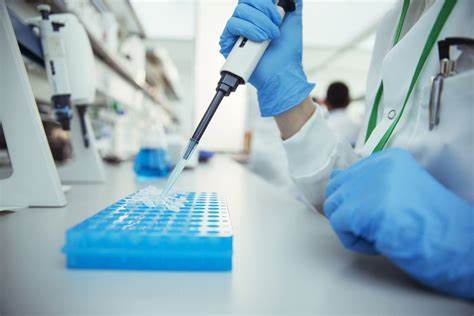
image credit- shutterstock
Worldwide, an estimated 19.3 million new cancer cases and almost 10 million cancer deaths occurred in 2020, as per the GLOBOCAN 2020 report. Female breast cancer has surpassed lung cancer as the most commonly diagnosed cancer, with an estimated 2.3 million new cases (11.7 per cent), followed by lung (11.4 per cent), colorectal (10 per cent), prostate (7.3 per cent), and stomach (5.6 per cent) cancers. The global cancer burden is expected to be 28.4 million cases in 2040, a 47 per cent rise from 2020.
For both sexes combined, one-half of all cases and 58.3 per cent of cancer deaths are estimated to occur in Asia in 2020, where 59.5 per cent of the global population resides. In contrast to other regions, the share of cancer deaths in Asia (58.3 per cent) and Africa (7.2 per cent) are higher than the share of incidence (49.3 per cent and 5.7 per cent, respectively) because of the different distribution of cancer types and higher case fatality rates in these regions.
Although 2020 was more focused on finding solutions to fight the COVID-19 pandemic, it pushed the boundaries of cancer prevention, diagnosis and treatment. Researchers across Asia have continued to make meaningful strides against cancer in 2020. One such remarkable example is that of Singapore.
Due to the innovations arising within the region as well as the world-renowned healthcare system that the country boasts, Singapore attracts a myriad of medical professionals, academic researchers and healthcare-focused companies.
According to the Ministry of Health at Singapore, cancer is the number one killer in the country, with an average of 41 people getting diagnosed with cancer every day, and 15 people die from cancer every day. In particular, lung, colorectal and breast cancer are amongst the leading causes of cancer-related deaths in Singapore.
As a result of which, the scientific community across the country is setting new examples by focusing majorly on two aspects- chemotherapy and immunotherapy, to fight this deadly disease.
Efficacy of chemotherapy
Although chemotherapy is a powerful and one of the most common forms of cancer treatment that uses drugs to destroy cancer cells, there are conditions when it is no longer effective against cancer or in minimizing symptoms.
But now cancer patients who are undergoing chemotherapy can look forward to a new blood test that could tell their doctors whether the treatment is working, within one day after the start of the treatment. This will significantly speed up the evaluation process and enable doctors to make adjustments to the treatment plan, if necessary, to improve patients’ chances of recovery.
This has been made possible by the Department of Biomedical Engineering and Institute for Health Innovation & Technology (iHealthtech) at the National University of Singapore (NUS) where researchers have developed a technology that is accurate, less invasive and significantly brings forward the evaluation window, by using liquid biopsies. A patent has been filed for the technology and the NUS team hopes to bring this technology to market in the next three years.
“The technique, termed extracellular vesicle monitoring of small-molecule chemical occupancy and protein expression (ExoSCOPE), is the first of its kind in the world. It takes advantage of extracellular vesicles (EVs) secreted by cancer cells and circulating in blood as a reflective indicator of drug effectiveness in solid tumours. Conventional procedures such as tumour imaging are not only expensive but also delayed. For these methods, treatment effectiveness can only be determined after weeks. Using the ExoSCOPE, we can directly measure the outcomes of drug effectiveness within 24 hours of treatment initiation. This will significantly reduce the time and cost for cancer treatment monitoring”, explains Dr Shao Huilin, Assistant Professor, Department of Biomedical Engineering, National University of Singapore.
On the other hand, a team of researchers at the NUS Yong Loo Lin School of Medicine is studying the resistance of cancer cells to chemotherapy that is marked by changes and increased output of certain proteins.
To read the full story, click here.....




